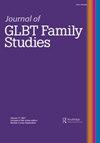向非裔女同性恋母亲学习开展研究
IF 2
Q2 FAMILY STUDIES
引用次数: 1
摘要
摘要本文的目的是传达最近一项关于黑人女同性恋、父母、伴侣母亲及其家庭经历的研究所吸取的教训,这些教训挑战了家庭研究和开展研究的顺异性规范方法。方法论障碍,包括研究人员的白人身份、语言使用和政治背景,被用作接触潜在研究参与者的挑战的例子。研究参与者表达了如何提供敏感、安全和包容的研究的想法,这些研究侧重于酷儿家庭的独特视角。与这些家庭的讨论强调了研究人员自反性的重要性,以及与希望合作的群体中的个人合作,以获得独特的数据收集方法的重要性。在本文中,研究者被视为既是内部人又是外部人,处于这两种立场之间。本文中概述的例子提请人们注意酷儿家庭经历的多样性以及交叉方法的必要性。对未来研究的建议包括创建和审查以社会正义为导向的方法,通过这种方法可以更好地理解非裔美国人父母的酷儿家庭的经历。本文章由计算机程序翻译,如有差异,请以英文原文为准。
Learning from African American Lesbian Mothers about Conducting Research
Abstract The aim of this article is to convey lessons learned from a recent research study on Black lesbian, parented, partnered mothers and their families’ experiences, lessons that challenge the cisheteronormative methodology for family studies and conducting research. Methodological barriers, including the researcher’s white identity, language usage, and the political context, are used as examples of challenges gaining access to potential research participants. The research participants voiced ideas about how to provide sensitive, safe, and inclusive research that focuses on the unique perspectives of queer families. Discussions with these families underscore the importance of researcher reflexivity and partnering with individuals from the groups one wishes to work with to derive unique methods for collecting data. In this article the researcher is regarded as positioned as both insider and outsider and between these two positions. The examples outlined in this article draw attention to the plurality of queer families’ experiences and the need for intersectional methodologies. Suggestions for future research include the creation and examination of social justice-oriented methodology through which African-American-parented queer families’ experiences can be better understood.
求助全文
通过发布文献求助,成功后即可免费获取论文全文。
去求助
来源期刊

JOURNAL OF GLBT FAMILY STUDIES
FAMILY STUDIES-
CiteScore
3.90
自引率
0.00%
发文量
0
期刊介绍:
The Journal of GLBT Family Studies is a much-needed resource on the working dynamics of the diverse family structures found in every corner of the world. This groundbreaking new journal addresses the vital issues facing gay, lesbian, bisexual, and transgender individuals and their families. Edited by Dr. Jerry J. Bigner, who has provided expert witness testimony in legal cases and in the litigation involving same-sex marriages in Canada, the journal features interdisciplinary studies and scholarly essays on topics related to GLBT family life and functioning as well as relationships with other families.
 求助内容:
求助内容: 应助结果提醒方式:
应助结果提醒方式:


